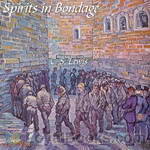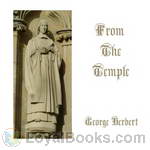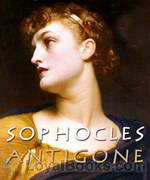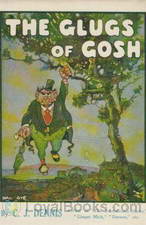|
Books Should Be Free Loyal Books Free Public Domain Audiobooks & eBook Downloads |
|
|
Books Should Be Free Loyal Books Free Public Domain Audiobooks & eBook Downloads |
|
Poetry |
|---|
|
Book type:
Sort by:
View by:
|
By: Matthew Arnold | |
|---|---|
 Balder Dead
Balder Dead
“Balder Dead” is a beautiful epic poem by Matthew Arnold. It draws from Norse mythology to retell the story of the the death of Odin’s son, Balder, instigated by the treacherous jealousy of Loki. | |
 Tristram and Iseult & Sohrab and Rustum
Tristram and Iseult & Sohrab and Rustum
Tristram & Iseult is a narrative poem containing strong romantic and tragic themes: and was first published in 1852 by Matthew Arnold. This poem draws upon the Tristram and Iseult legends: which were popular with contemporary readers.The poem opens with Tristram upon his deathbed. The monologue of the dying man is shot through with sharp pangs of regret: centering upon his induced passion for Iseult of Ireland - inflamed by his unwittingly imbibing an irresistible love-potion.Before his decease, Tristram's lawful wife - Iseult of Ireland - arrives in time to share his deathbed... | |
By: Susan Coolidge (1835-1905) | |
|---|---|
 Verses
Verses
Susan Coolidge was the pen name of Sarah Chauncey Woolsey, who is best known for her What Katy Did series. This is the first of three volumes of her verse. | |
By: C. S. Lewis (1898-1963) | |
|---|---|
 Spirits in Bondage: a cycle of lyrics
Spirits in Bondage: a cycle of lyrics
First published in 1919 under his pseudonym Clive Hamilton, Spirits in Bondage, is also the first published book by the notorious novelist C.S. Lewis. This early piece of work represents Lewis’ youth, as it was written at a time when the author had just returned from his military service in the First World War. In addition it differentiates itself from his other works, not just in terms of style, but also in themes due to his agnostic stand at the time. Written in the form of poetry, the piece is divided into three sections of poetry, each intended to be read in chronological order to gain complete access to its themes and ideas... | |
By: Helen Hunt Jackson (1830-1885) | |
|---|---|
 A Calendar of Sonnets
A Calendar of Sonnets
Helen Hunt Jackson is probably most famous for her work on behalf of Native Americans’ rights. However, this short volume presents a sonnet for each month of the year, devoted simply and beautifully to the shifting wonder of nature through the seasons. | |
By: James Weldon Johnson (1871-1938) | |
|---|---|
 Word of an Engineer
Word of an Engineer
James Weldon Johnson was an American author, educator, lawyer, diplomat, songwriter, and civil rights activist. Johnson is best remembered for his leadership within the National Association for the Advancement of Colored People (NAACP), where he started working in 1917, being chosen as the first black executive secretary of the organization, effectively the operating officer. He was first known for his writing, which includes poems, novels, and anthologies collecting both poems and spirituals of black culture. | |
By: W. S. Gilbert (1836-1911) | |
|---|---|
 The Bab Ballads
The Bab Ballads
The Bab Ballads are a collection of light verse by W. S. Gilbert, illustrated with his own comic drawings. Gilbert wrote the Ballads before he became famous for his comic opera librettos with Arthur Sullivan. In writing the Bab Ballads, Gilbert developed his unique “topsy-turvy” style, where the humour was derived by setting up a ridiculous premise and working out its logical consequences, however absurd. The Ballads also reveal Gilbert’s cynical and satirical approach to humour. They became famous on their own, as well as being a source for plot elements, characters and songs that Gilbert would recycle in the Gilbert and Sullivan operas... | |
By: John Keats | |
|---|---|
 John Keats: Selected Poems
John Keats: Selected Poems
John Keats is perhaps the most talented poet of the English Romantic Period. Although his life was cut short by disease at the age of 25, he produced some of the most famous poems in world literature. Less erudite and philosophical than Shelley and not so technically versatile as Byron, he displayed a sure poetic instinct and an amazing ability to appeal powerfully to the senses and to the emotions by the brilliance of his diction. Thus his poetry is noted more for exquisite feeling than for thought, but in his particular sphere he was unmatched. His influence upon later poets has been immense. (Introduction by Leonard Wilson) | |
 Poems 1817
Poems 1817
Early poems of this famous English lyric poet, in which he openly expresses indebtedness to, and reverence for, his poetic predecessors, especially Spenser, into whose chivalric world he boldly ventures; and also for Milton, and the classic poets. There are also glimpses of his personal, family and political relationships. These poems are of medium length and often pastoral and contemplative in nature with many classical references. His lyric genius and love for humanity are clearly displayed.( Peter Tucker) | |
By: Sara Teasdale (1884-1933) | |
|---|---|
 Helen of Troy and Other Poems
Helen of Troy and Other Poems
| |
 India Wharf
India Wharf
Sara Teasdale was an American lyric poet. | |
By: Edwin Arlington Robinson (1869-1935) | |
|---|---|
 Man Against the Sky: A Book of Poems
Man Against the Sky: A Book of Poems
This is a volume of later Poetry by the famous American poet Edwin Arlington Robinson. | |
 Three Taverns: A Book of Poems
Three Taverns: A Book of Poems
This is a volume of poems by Edwin Arlington Robinson. This volume contains, among other poems, the famous poems The Valley of the Shadow and Lazarus. | |
By: George Herbert (1593-1633) | |
|---|---|
 Selection from 'The Temple'
Selection from 'The Temple'
George Herbert (April 3, 1593 – March 1, 1633) was a Welsh poet, orator and a priest. Throughout his life he wrote religious poems characterized by a precision of language, a metrical versatility, and an ingenious use of imagery or conceits that was favored by the metaphysical school of poets. He is best remembered as a writer of poems and hymns such as “Come, My Way, My Truth, My Life” and “The King of Love My Shepherd Is.” | |
 From The Temple
From The Temple
George Herbert was a country minister, and a protégé of the great metaphysical poet John Donne. In The Temple, Herbert combines these two aspects of his training in one of the greatest cycles of religious poetry ever written. This is reading of a selection of these poems. | |
By: Alexander Pope | |
|---|---|
 An Essay on Criticism
An Essay on Criticism
An Essay on Criticism was the first major poem written by the English writer Alexander Pope (1688-1744). However, despite the title, the poem is not as much an original analysis as it is a compilation of Pope’s various literary opinions. A reading of the poem makes it clear that he is addressing not so much the ingenuous reader as the intending writer. It is written in a type of rhyming verse called heroic couplets. | |
By: Amy Lowell (1874-1925) | |
|---|---|
 Dome of Many-Coloured Glass
Dome of Many-Coloured Glass
This is a collection of lyrical poems, sonnets and verses for children by Amy Lowell."For quaint pictorial exactitude and bizarrerie of color these poems remind one of Flemish masters and Dutch tulip gardens; again, they are fine and fantastic, like Venetian glass; and they are all curiously flooded with the moonlight of dreams. . . . Miss Lowell has a remarkable gift of what one might call the dramatic-decorative. Her decorative imagery is intensely dramatic, and her dramatic pictures are in themselves vivid and fantastic decorations." (Richard Le Gallienne, 'New York Times Book Review', 1916) | |
 Men, Women and Ghosts
Men, Women and Ghosts
This is a collection of long poems and short stories by Amy Lowell. | |
By: Alfred Noyes (1880-1958) | |
|---|---|
 Drake
Drake
Alfred Noyes, in the blank-verse epic "Drake", fictionalizes the historical Francis Drake, who, during the reign of Elizabeth I of England, sailed (and plundered) on the Spanish Main and beyond. | |
By: Carl Sandburg (1878-1967) | |
|---|---|
 Cornhuskers
Cornhuskers
Carl Sandburg’s collection of 103 poems that earned a Pulitzer Prize Special Letters Award in 1919. | |
By: Bret Harte (1836-1902) | |
|---|---|
 What the Wolf Really Said to Little Red Riding Hood
What the Wolf Really Said to Little Red Riding Hood
Francis Bret Harte was an American author and poet, best remembered for his short fiction featuring miners, gamblers, and other romantic figures of the California Gold Rush. In a career spanning more than four decades, he wrote poetry, fiction, plays, lectures, book reviews, editorials, and magazine sketches in addition to fiction. As he moved from California to the eastern U.S. to Europe, he incorporated new subjects and characters into his stories, but his Gold Rush tales have been most often reprinted, adapted, and admired. | |
By: William McGonagall (1825-1902) | |
|---|---|
 Temperance Gems
Temperance Gems
Good people all, of every degree,I pray, ye all be warned by me:I advise ye all to pause and think,And never more to taste strong drink. Some people do say it is good when taken in moderation,But, when taken to excess, it leads to tribulation,Also to starvation and loss of reputation,Likewise your eternal soul’s damnation. McGonagall has been widely acclaimed as the worst poet in British history. He campaigned vigorously against excessive drinking, appearing in pubs and bars to give edifying poems and speeches... | |
By: G. K. Chesterton (1874-1936) | |
|---|---|
 The Ballad of St. Barbara and Other Verses
The Ballad of St. Barbara and Other Verses
This book of poetry by G.K. Chesterton, originally published in 1922, contain 35 poems on a variety of subjects. | |
By: Hopkins, Gerard Manley (1844-1889) | |
|---|---|
 Poems of Gerard Manley Hopkins, ed. Robert Bridges
Poems of Gerard Manley Hopkins, ed. Robert Bridges
Gerard Manley Hopkins (1844–89) was an English poet, educated at Oxford. Entering the Roman Catholic Church in 1866 and the Jesuit novitiate in 1868, he was ordained in 1877. Upon becoming a Jesuit he burned much of his early verse and abandoned the writing of poetry. However, the sinking in 1875 of a German ship carrying five Franciscan nuns, exiles from Germany, inspired him to write one of his most impressive poems “The Wreck of the Deutschland.” Thereafter he produced his best poetry, including “God’s Grandeur,” “The Windhover,” “The Leaden Echo,” and “The Golden Echo.” | |
By: Sophocles (495-406 BC) | |
|---|---|
 Antigone
Antigone
This is the final installment in Sophocles's Theban Plays, following Oedipus Rex and Oedipus at Colonus. Oedipus's daughter Antigone deliberately breaks the laws of Thebes when she buries her brother's body and is sentenced to death. She clashes with Creon, the King of Thebes, over what constitutes justice and morality: the laws of the state or the laws of the individual. | |
By: William Ross Wallace (1819-1881) | |
|---|---|
 The Hand that Rocks the Cradle is the Hand that Rules the World
The Hand that Rocks the Cradle is the Hand that Rules the World
For Mother’s Day 2006, we’ve recorded five versions of this tribute to Mothers and their role in shaping the future. The title is very famous out of its context, but now you can hear how it was originally intended. | |
By: Christopher Morley (1890-1957) | |
|---|---|
 Mince Pie
Mince Pie
Mince Pie is a compilation of humorous sketches, poetry, and essays written by Christopher Morley. Morley sets the tone in the preface: "If one asks what excuse there can be for prolonging the existence of these trifles, my answer is that there is no excuse. But a copy on the bedside shelf may possibly pave the way to easy slumber. Only a mind "debauched by learning" (in Doctor Johnson's phrase) will scrutinize them too anxiously." | |
By: John Greenleaf Whittier | |
|---|---|
 Snow-Bound: A Winter Idyl
Snow-Bound: A Winter Idyl
A 750-line idyllic poem about a snow-storm from the narrator’s childhood. | |
 Christmas Carmen
Christmas Carmen
John Greenleaf Whittier was an American Quaker poet and advocate of the abolition of slavery in the United States. Frequently listed as one of the Fireside Poets, Whittier was influenced by the Scottish poet Robert Burns. | |
By: C. J. Dennis (1876-1938) | |
|---|---|
 The Glugs of Gosh
The Glugs of Gosh
First published in 1917, The Glugs of Gosh satirizes Australian life at the start of the twentieth century – but the absurdities it catalogs seem just as prevalent at the start of the twenty-first. The foolishness of kings, the arrogance of the elite, the gullibility of crowds, the pride of the self-righteous, the unthinking following of tradition – all find themselves the targets of C. J. Dennis’ biting wit. | |
 The Songs of a Sentimental Bloke
The Songs of a Sentimental Bloke
The Songs of a Sentimental Bloke is a verse novel by Australian novelist and poet C. J. Dennis. The book sold over 60,000 copies in nine editions within the first year, and is probably one of the highest selling verse novels ever published in Australia.The novel tells the story of Bill, a larrikin of the Little Lonsdale Street Push, who is introduced to a young woman by the name of Doreen. The book chronicles their courtship and marriage, detailing Bill’s transformation from a violence-prone gang member to a contented husband and father. C.J. Dennis went on to publish three sequels to this novel: The Moods of Ginger Mick (1916), Doreen (1917) and Rose of Spadgers (1924) | |
By: Luis Vaz de Camões (1524-1580) | |
|---|---|
 The Lusiads
The Lusiads
The Lusiads (Os Lusíadas) is a Portuguese epic poem, written in the 16th century by Luis Vaz de Camões. The poem tells the tale of the Portuguese discoveries in the 15th and 16th centuries, specially the voyage to India by Vasco da Gama. Modelled after the classic epic tradition, Camões' Lusiads are considered not only the first literary text in Modern Portuguese, but also a national epic of the same level as Vergil's Aeneid. In the 19th century, Sir Richard Francis Burton translated Camões' Lusiads, in what he considered "the most pleasing literary labour of his life". | |